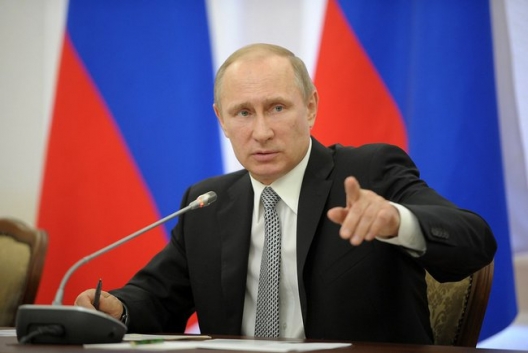 [I]n the wake of Russia’s annexation of Crimea, the once-dormant debate about joining NATO is heating up in both Finland and its Nordic neighbor, Sweden. Both countries cooperate extensively with the Atlantic alliance (for instance, deploying troops to Afghanistan and the Balkans) and are members of NATO’s “Partnership for Peace,” a bilateral program that offers extensive defense coordination. What it does not offer, however, is the most crucial benefit of actual NATO membership: protection under Article 5 of the organization’s charter, which deems an attack on one member as an attack on all. Indeed, Norway’s defense minister said in 2013 that she was not certain her country would come to Sweden’s defense in the event of an attack.
[I]n the wake of Russia’s annexation of Crimea, the once-dormant debate about joining NATO is heating up in both Finland and its Nordic neighbor, Sweden. Both countries cooperate extensively with the Atlantic alliance (for instance, deploying troops to Afghanistan and the Balkans) and are members of NATO’s “Partnership for Peace,” a bilateral program that offers extensive defense coordination. What it does not offer, however, is the most crucial benefit of actual NATO membership: protection under Article 5 of the organization’s charter, which deems an attack on one member as an attack on all. Indeed, Norway’s defense minister said in 2013 that she was not certain her country would come to Sweden’s defense in the event of an attack.
This month, Finnish Prime Minister Jyrki Katainen raised the possibility of NATO membership, the mere discussion of which is something of a taboo in Finnish politics. “My personal opinion is that Finland should belong to NATO. It would strengthen Finland’s position,” he said, acknowledging that this position placed him “in the minority.” But Katainen was speaking only for himself and his center-right political party, the only one in Finland that supports NATO membership. The broad coalition government of five parties that he leads does not have a position on joining NATO. And Katainen spoke out on the issue as a lame duck: The previous week, he had announced plans to resign.
Most Finns oppose joining NATO. Prior to Russia’s invasion of Crimea, a poll found that fewer than 20 percent supported becoming a member of the alliance, reported the Finnish newspaper Helsingin Sanomat. And though that number increased to about one-third after Russia’s annexation of the Black Sea peninsula, it occurred as part of a broader phenomenon of polarization that saw a sizable dip in undecideds. “Whenever something happens, both sides go into their own holes,” explained Patrik Gayer, an advisor to the Finnish defense minister and a proponent of NATO expansion.
Part of the reason, Gayer said, is that the “ghosts of Finlandization” still haunt the Finnish public. Although the country maintained a degree of sovereignty far greater than any Warsaw Pact country during the Cold War, it was still heavily influenced by its powerful neighbor, which quietly exercised a veto power over the composition of Finnish governments, induced a culture of self-censorship in the media, and essentially prevented Finland from having an independent foreign policy. Although most Finns would be loath to admit it, a sense of trepidation about provoking Russia remains widespread, nearly 25 years after the Cold War’s end. Among the Finnish political class, support for NATO is popular almost exclusively among ex-politicians (like former president and Nobel Peace Prize winner Martti Ahtisaari), or those on their way out the door, like the current prime minister, who feel more comfortable raising the issue once they no longer have to answer to the public. This year, a group of five former defense ministers signed an article supporting NATO membership.
At the same time, however, opposition to NATO expansion is soft. Polls indicate that a majority of Finns would support NATO membership were the country’s political leaders to come out decisively for it. Among the country’s military brass, the debate is largely over; 66 percent of military officers want the country to join the Atlantic alliance. “Things will change the day when the leadership says that we should join the NATO — that is very obvious,” Carl Haglund, Finland’s pro-NATO defense minister, said in April at the Lennart Meri Conference, an annual security forum held in Tallinn, Estonia. . . .
Arguments that Russia would react strongly to a Finnish bid to join NATO are predicated on the assumption that Moscow does not already consider Finland to be part of the West. Russian actions, however, suggest that it does. In 2013, the Finnish Foreign Ministry’s communications network was hacked, presumably by Russia, and Helsinki has long been an intelligence target for Moscow’s spies. According to Riho Terras, Estonia’s chief of defense, there exists “no neutrality for Russia. You are either with us or against us. The nations along the Baltic Sea should take that into consideration.” Gayer concurred: “Once we picked the EU, we picked our side,” he said.
Moreover, Finland already leans on NATO for support, whether or not it’s a formal member. “If you want to have a meaningful defense, a small country cannot afford it, simply,” said Henrik Lax, a former Finnish presidential candidate. The Finnish suffer from a false sense of security, he said, stemming from their being a “hostage of misinterpretation of their history. Too many think that [during the years of Finlandization] it was our own smartness that gave us a margin to act, a space for maneuver in the international arena. Yes, we were able quite skillfully to use the situation. But fundamentally NATO was behind us…. Not invading Finland was [Russia’s] price to not have NATO on its borders. If the Soviet Union had threatened us militarily, Sweden would have joined NATO.”
Image: Russian President Vladimir Putin in Karelia, April 28, 2014 (photo: Office of the President of Russia)
